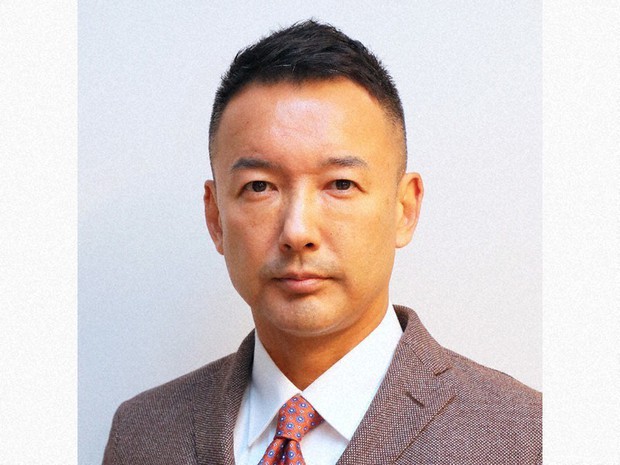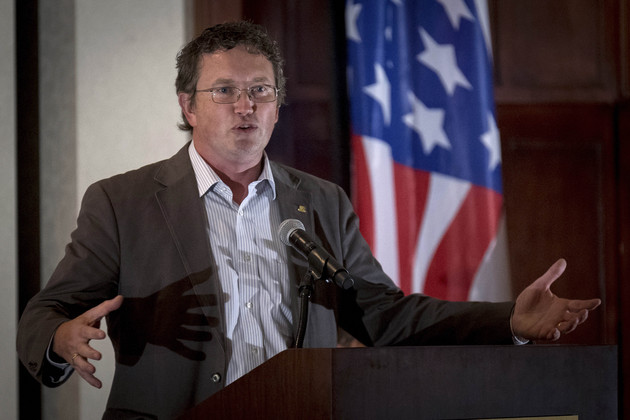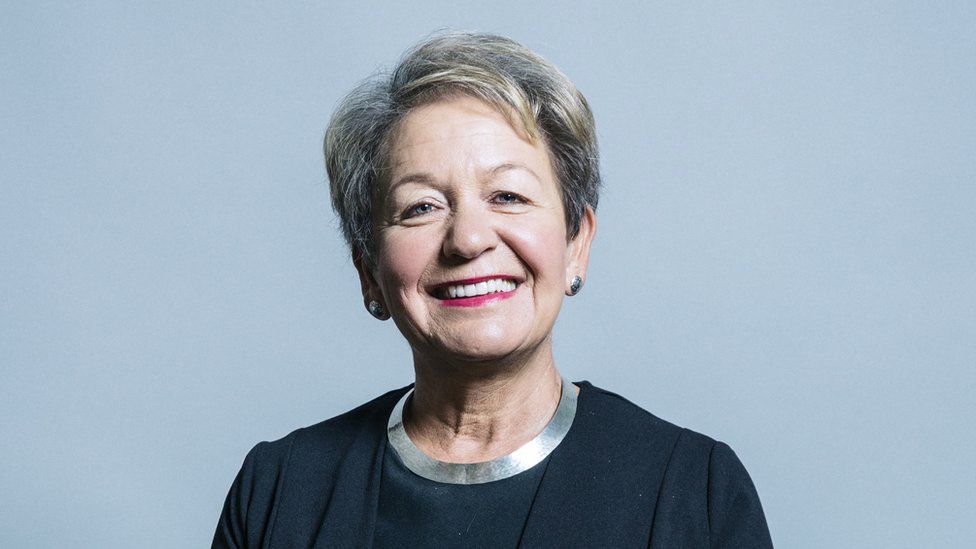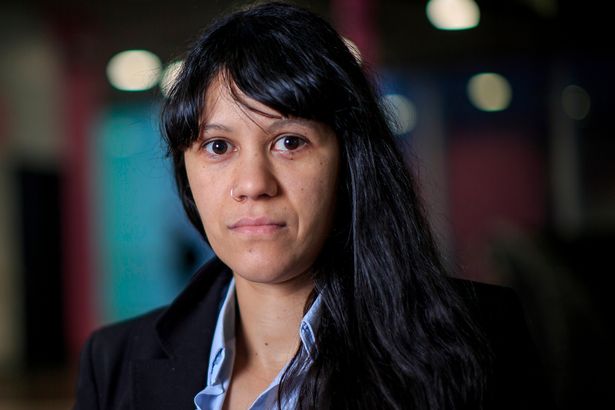Famous Politicians With Autism
In recent years, there has been an increase in the number of politicians who openly identify as being on the autism spectrum. This trend is indicative of a growing acceptance and recognition of the unique perspectives and abilities that individuals with autism can bring to the political arena.
Autistic Politicians
Autism is a neurodevelopmental disorder that affects social interaction, communication, and behavior. While autism is often associated with difficulties in these areas, many individuals with autism have unique strengths and talents that they can bring to various fields, including politics.

Which Politicians Have Autism?
In addition to Taro Yamamoto and Thomas Massie, there are many other politicians worldwide who are on the autism spectrum. Here are some examples:
1. Daniël Termont

A well-known figure in Belgian politics, having served as the mayor of Ghent for several years. He is widely respected for his leadership and dedication to improving the lives of his constituents.
During his time in office, he implemented numerous initiatives aimed at promoting economic growth, improving public transportation, and enhancing the city's cultural offerings. Despite facing some criticism and controversy during his tenure, Termont remained committed to his vision for Ghent and worked tirelessly to make it a better place for all who call it home.
2. Taro Yamamoto

Japanese lawmaker. Yamamoto was diagnosed with Asperger's syndrome, a high-functioning form of autism, at the age of 37. Despite facing discrimination and stigma due to his diagnosis, Yamamoto has become a prominent political figure in Japan, known for his outspokenness on issues such as nuclear power and national security.
3. Thomas Massie

Diagnosed with Asperger's syndrome as an adult. Massie, a Republican from Kentucky, has been a vocal advocate for limited government and individual freedom. He has also been a proponent of alternative energy sources and has worked to promote sustainable agriculture practices.
4. Michael John Carley

An accomplished individual who founded the Global and Regional Asperger Syndrome Partnership (GRASP), an organization dedicated to improving the lives of those with Asperger's syndrome. He is also a former candidate for New York State Senate.
5. Anja Hazekamp

A passionate Dutch politician who is currently serving as a member of the European Parliament. She is affiliated with the Party for the Animals, a political party that advocates for animal rights and environmental protection.
Hazekamp is a strong advocate for animal welfare and has been actively involved in promoting policies that protect animals from cruelty and exploitation. Her dedication to this cause has earned her a reputation as a compassionate and committed leader.
6. Silvia Modig

A Finnish politician who has dedicated her career to serving the people of her country. She is best known for her time as a Member of the European Parliament from 2014 to 2019, during which she worked tirelessly to promote the interests of her constituents and advance the cause of social justice throughout Europe.
Despite facing numerous challenges and obstacles along the way, Silvia remained steadfast in her commitment to making a positive difference in the lives of others, and her contributions to the field of politics will be remembered for years to come.
7. Jessica Benham

A disability rights activist and community organizer who became the first openly autistic person to be elected to the Pennsylvania state legislature in 2020. Benham has been a vocal advocate for healthcare reform, LGBTQ+ rights, and environmental justice.
As a politician on the autism spectrum, Benham brings a unique perspective to legislative decision-making and is committed to creating policies that benefit all members of her community.
8. Rosie Winterton

Rosie Winterton is a British politician who has been a Member of Parliament (MP) for the Doncaster Central constituency since 1997. She has held various positions in government, including serving as a Minister of State for Health and as the Shadow Secretary of State for Transport.
She has also been a member of various parliamentary committees and has been actively involved in promoting issues related to health, education, and social justice. While her autism diagnosis became public knowledge later in her political career, she has not directly focused on autism-related policies.
However, her openness about her diagnosis has helped in reducing the stigma surrounding autism and promoting understanding.
9. David Finch

An American author, speaker, and political commentator who was diagnosed with Asperger's syndrome in adulthood. Finch is known for his memoir "The Journal of Best Practices," which chronicles his experiences navigating marriage and fatherhood while on the autism spectrum. He has also written about politics and social issues from an autistic perspective.
10. Emma Dalmayne

A British autism rights activist who has worked to raise awareness about issues such as abuse of autistic individuals and discrimination in healthcare settings. Dalmayne is also involved in politics as a member of the Women's Equality Party UK.
As more individuals on the autism spectrum become involved in politics, it is important to recognize their unique perspectives and abilities. These politicians bring valuable insights into issues such as healthcare, education, and disability rights that can help shape policy decisions for the betterment of all members of society.
The contributions of these individuals highlight how neurodiversity can be an asset in politics. By bringing unique perspectives and experiences to their work, autistic politicians have the potential to make positive changes that benefit all members of society.
The Unique Perspectives of Autistic Individuals
The unique perspectives and insights that individuals with autism can bring to politics are not limited to those who have been diagnosed with the disorder.
Many people who may not have an official diagnosis of autism still exhibit traits and characteristics that are commonly associated with the disorder, such as a strong focus on detail, a preference for routine, and a tendency towards direct and honest communication.
Challenges and Accommodations
Individuals with autism may face unique challenges when it comes to navigating the political arena. For example, they may struggle with social cues or may have difficulty with public speaking or communication in large groups.
However, with the right support and accommodations, individuals with autism can excel in politics and make valuable contributions to society.
In order to ensure that individuals with autism have equal access to political opportunities, it is important for political organizations and institutions to be inclusive and accommodating.
This may include providing training and support for individuals with autism who are interested in pursuing a career in politics, as well as making accommodations for those who may need additional support in order to fully participate in political activities.
The Benefits of Having Autistic Individuals in Politics
Autistic individuals have unique skills and perspectives that can be valuable in politics. For example, many people on the autism spectrum have a strong attention to detail and are able to focus deeply on specific issues or topics. This can make them highly effective at research, analysis, and problem-solving.
Additionally, autistic individuals often have a strong sense of justice and fairness, which can make them passionate advocates for social causes such as disability rights, healthcare reform, and education equity.
Furthermore, because many autistic individuals struggle with traditional forms of communication such as small talk or nonverbal cues, they may be more direct and honest in their communication style. This can be a refreshing change from the often-polished language used by other politicians.
Overall, having autistic individuals in politics can bring new perspectives and ideas to the table. By embracing neurodiversity in politics, we can create a more inclusive and representative government that truly serves all members of society.
Examples of Successful Policies created by Politicians with Autism
Politicians with autism are uniquely positioned to create policies that address the needs and concerns of the autistic community. Here are some examples of successful policies created by politicians on the autism spectrum:
- Taro Yamamoto, a Japanese lawmaker with Asperger's syndrome, has been a vocal advocate for disability rights in Japan. In 2013, he proposed legislation aimed at improving accessibility for people with disabilities in public spaces, including restaurants, hotels, and transportation hubs. The bill was later passed into law and has helped to make Japan a more inclusive society.
- Thomas Massie, a U.S. Representative from Kentucky who has Asperger's syndrome, has been a strong advocate for sustainable agriculture practices. In 2018, he introduced the PRIME Act (Processing Revival and Intrastate Meat Exemption Act), which would allow small-scale meat producers to sell their products directly to consumers without having to go through a USDA-inspected facility. The bill is aimed at promoting local food systems and supporting small farmers.
- Jessica Benham, the first openly autistic person elected to the Pennsylvania state legislature, has been working to improve healthcare outcomes for people with disabilities in her state. In 2021, she introduced legislation that would require hospitals in Pennsylvania to provide accommodations such as sensory-friendly rooms and communication boards for patients with autism or other sensory processing disorders. The bill is currently being considered by the state's House Health Committee.
These policies demonstrate how politicians with autism can bring unique insights and perspectives to policy-making that can benefit all members of society. By promoting inclusivity and sustainability while addressing specific needs within their communities, these politicians have shown that neurodiversity can be an asset in politics.
Challenges Faced by Autistic Politicians and How They Can Be Overcome
While autistic politicians bring unique perspectives to the political arena, they may also face certain challenges due to their neurodivergent traits. For example, some individuals on the autism spectrum may struggle with social cues or may have difficulty with public speaking or communication in large groups.
These challenges can make it difficult for them to navigate the complex and often unpredictable world of politics.
However, with the right support and accommodations, these challenges can be overcome. One key strategy is to provide training and support for individuals with autism who are interested in pursuing a career in politics.
This could include specialized coaching on public speaking or communication skills, as well as guidance on how to navigate the social dynamics of political events.
In addition, it is important for political organizations and institutions to be inclusive and accommodating of individuals with autism. This could involve making physical accommodations such as providing quiet spaces or sensory-friendly environments at political events, as well as being more flexible in terms of scheduling or other logistical considerations.
Finally, it is crucial that politicians with autism receive acceptance and support from their colleagues and constituents. By promoting a culture of inclusivity and understanding within the political sphere, we can create an environment where everyone has equal access to opportunities for leadership and representation.
Changing Public Perception through Representation
The increased representation of autistic individuals in politics has the potential to change public perception and understanding of the disorder. By seeing successful politicians who openly identify as being on the autism spectrum, people may begin to recognize that autism is not a barrier to success or leadership.
Furthermore, having more autistic politicians in positions of power can help to break down stereotypes and stigma surrounding the disorder. Rather than seeing autism as a deficit or weakness, society may come to view it as a unique way of thinking that can be an asset in many areas, including politics.
By promoting greater acceptance and understanding of autism, we can create a more inclusive and supportive society for all individuals on the spectrum. This can help to improve outcomes in areas such as education, employment, and healthcare, as well as reduce barriers to participation in civic life.
Overall, increasing representation of autistic individuals in politics has the potential to create positive change not just within government but also within society at large.
The Benefits of Autistic Individuals for Society
Autistic individuals bring unique perspectives and abilities that can benefit society as a whole. For example, many people on the autism spectrum have a strong attention to detail and are able to focus deeply on specific issues or topics. This can make them highly effective at research, analysis, and problem-solving.
In addition, autistic individuals often have a deep sense of justice and fairness, which can make them passionate advocates for social causes such as disability rights, healthcare reform, and education equity.
Furthermore, because many autistic individuals struggle with traditional forms of communication such as small talk or nonverbal cues, they may be more direct and honest in their communication style. This can be a refreshing change from the often-polished language used by other politicians.
Overall, embracing neurodiversity in society and recognizing the unique strengths of people on the autism spectrum can lead to more innovative solutions to complex problems. By valuing diversity in all its forms, we can create a more inclusive and equitable society that benefits everyone.
Autistic Politicians and Promoting Mental Health Awareness
Autistic politicians can play a crucial role in promoting mental health awareness and support, particularly for individuals on the autism spectrum. Many people with autism also experience co-occurring mental health conditions such as anxiety, depression, or ADHD.
As politicians on the spectrum, these individuals can use their unique perspectives to advocate for policies that prioritize mental health services and support for all members of society.
This may include initiatives aimed at reducing stigma surrounding mental illness, increasing access to therapy and medication, or promoting alternative therapies such as mindfulness or art therapy.
Furthermore, by sharing their own experiences with mental health challenges, autistic politicians can help to break down stereotypes and promote greater understanding of the complex interplay between autism and mental health.
Overall, by prioritizing mental health awareness and support in their work as politicians, individuals on the autism spectrum can help to create a more inclusive and compassionate society that supports the well-being of all its members.
Conclusion
The rise of autistic politicians is indicative of a growing acceptance and recognition of the unique perspectives and talents that individuals with autism can bring to the political arena.
While individuals with autism may face unique challenges in navigating the political landscape, with the right support and accommodations, they can make valuable contributions to society and help shape the political discourse of the future.
Sources
https://en.wikipedia.org/wiki/Jessica_Benham
https://upward.news/p/voting-statistics-facts-trends
https://www.spectrumnews.org/opinion/autistic-people-are-coming-into-their-own-as-political-players/



